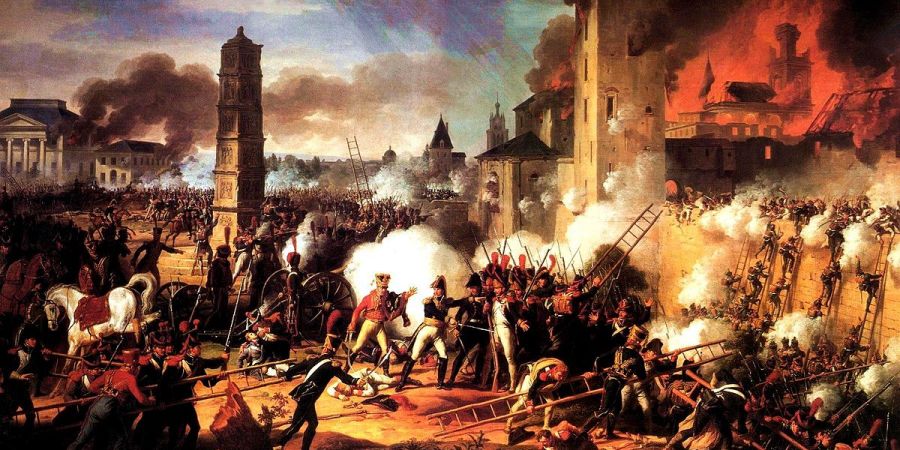

INDUCTION
This poem narrates the heroism and patriotism of a young soldier in Napoleon’s army. The French army have just stormed the city of Ratisbon and Napoleon stands at a distance waiting for confirmation that his troops have won. A young soldier boy who is heavily injured rushes to the scene and gives Napoleon the good news of victory but dies soon after. The poem is 40 lines long and divided into 5 stanzas. Its alternative lines rhyme.
POEM
You know, we French stormed ratisbon: A mile or so away, on a little mound,napoleon stood on our storming-day; with neck out-thrust,you fancy how, legs wide,arms locked behind, as if to balance the prone brow oppressive with its mind.
Just as perhaps he mused,'my plans that soar,to earth may fall, let once my army-leader lannes waver at yonder wall',- out 'twixt the battery-smoke there flew A rider,bound on bound Full- galloping:nor bridle drew until he reached the mound.
Then off there flung in smiling joy, And held himself erect By just his horse's mane, a boy: You hardly could suspect- (So tight he kept his lips compressed, Scarce any blood came through) You looked twice ere you saw his breast Was all but shot in two.
Well," cried he, "Emperor, by God's grace "We've got you Ratisbon! "The Marshal's in the market-place, "And you'll be there anon "To see your flag-bird flap his vans "Where I, to heart's desire, "Perched him!" The chief's eye flashed; his plans Soared up again like fire.
The chief's eye flashed; but presently Softened itself, as sheathes A film the mother-eagle's eye When her bruised eaglet breathes; "You're wounded!" "Nay," the soldier's pride Touched to the quick, he said: "I'm killed, Sire!" And his chief beside Smiling the boy fell dead.
About author
Robert Browning (7 May 1812-12 December 1889) was an English poet and playwright whose mastery of the dramatic monologue made him one of the foremost, Victorian poets. He was born in Camberwell, a suburb of London on 7 May 1812. He was educated mainly at home, but he attended a short course in Greek at London University. His poems are known for their irony, characterisation, dark humour, social commentary, historical settings and challenging vocabulary and syntax. He developed a unique form of conversational, unrhythmic verse. The collection 'Dramatis Personae' and the book-length epic poem "The Ring and the Book" made him a leading British poet. By 1881 in recognition of his outstanding contribution to literature, a literary society called Browning Society was established.
